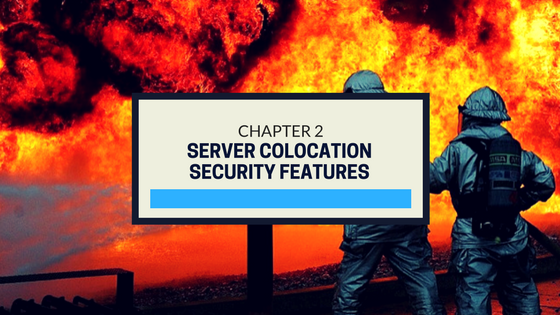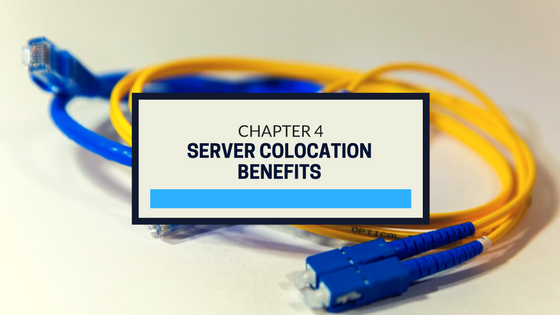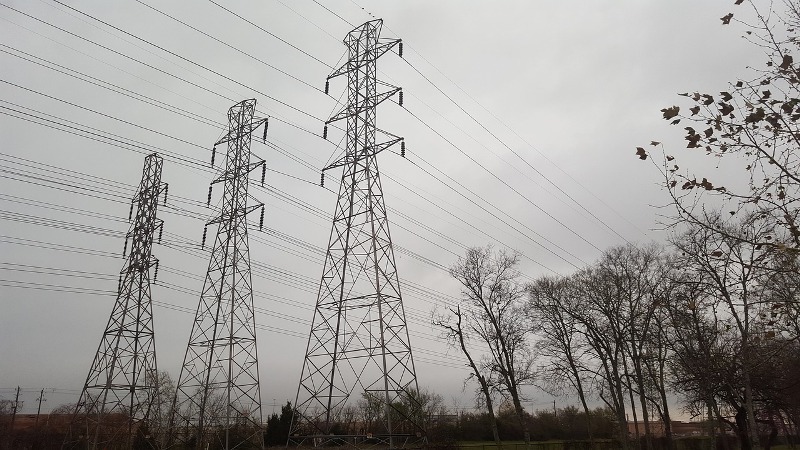Are you a business owner looking for the best server colocation in Atlanta? Are you unsure about what services you should expect or even what server colocation entails? Our ultimate guide to server colocation should help answer any questions or concerns that you might have in choosing the best provider for your company no matter what size. If you are looking for a trusted, secure, and reliable server colocation in Atlanta, contact DSC, Digital Service Consultants today.
 |
 |
 |
 |
 |
 |
“A business that truly cares for their customers. With high speeds and superior customer service, it’s obvious who to use.” – Cerebral Palsy Speaks
Read more customer reviews

What Is Server Colocation?
Server colocation enables your company to effectively rent space in a colocation center to house your own servers. The server is owned by your company and the operating system and applications are also all controlled by your company. The MSP (Managed Service Provider) is providing the physical space for the server, along with the power and network resources, including an IP address, required to keep it running. It is constantly maintained, managed, and monitored by the MSP. The MSP also provides cooling systems to properly maintain the servers, security features, uninterrupted power, network backup, and enhanced fire protection to further protect the equipment.
Other hosting services allow customers to rent space on a server that is owned by the hosting provider, however, with server colocation, the customer owns the server and is just renting the physical space where it is being housed and look after.

Server Colocation Security Features
Your data is vital to your business, so make sure that the server colocation facility you choose has the following security features:
Temperature and Humidity Control: Servers generate a substantial amount of heat. If IT equipment gets too hot or experiences any rapid temperature changes, it can fail without warning, so maintaining a consistent temperature is critical for any server colocation facility. Make sure that the center has its equipment stored in an HVAC (heating, ventilation and air conditioning)-equipped area.
Fire Protection: Server colocation centers should do their utmost to protect the very expensive equipment stored there as well as the invaluable data stored on the equipment. This is why they should take the risk of fire very seriously. Most facilities will enforce strict policies with severe penalties if they are not followed. Policies could include never leaving a cardboard box in a server room. They will also install thick, physical firewalls which will prevent a fire that breaks out in one room from spreading to others. These firewalls can also keep the equipment in the adjacent rooms protected from the extreme heat of the fire for a few hours while the blaze is dealt with.
Uninterrupted Power: Maintaining a constant supply of power is no small task during a blackout or brownout. Centers could have utility power connected to their building from separate substations. If one substation’s power is out, then there are still other substations feeding the building. This type of set up is referred to as an uninterruptible power supply or UPS. A UPS will ensure that if the primary power source is cut off, then a secondary one will seamlessly kick in. Generator backups are also used as another secondary power supply. Diesel generators can usually be topped up with extra fuel if a power outage lasts for an extended period of time.
24-7 Secured Access: A server colocation center should be a secure facility with electronic locking systems, but at the same time enable you to have access to your data 24 hours a day, seven days a week, and 365 days a year.
Redundant Fiber Connectivity: In today’s highly competitive business market, internet downtime is not an option. Therefore, a server colocation center needs to make sure that doesn’t happen. Network redundancy is the practice of having a secondary network in place and easily activated as soon as the primary internet connection fails. Fiber optic connectivity offers the fastest speeds, with the newest networks and highest bandwidths, making it the best option for redundancy.

Urban Vs Suburb/Rural Locations
Urban Locations:
Expansion: Urban locations may be limited in how much they expand, so if your business grows rapidly, your colocation center may not have the space to accommodate it.
Disaster Situations: If airports are shut down in a disaster like they were during 9/11, then having your colocation center located in the same city means you don’t have to worry about being able to travel there.
Costs: Urban server colocation centers will usually be more expensive as space in city centers tends to be much more expensive than in rural location.
Power Supply: Urban locations usually are better situated for connecting to the power grid from multiple substations.
Parking: Parking is often difficult to find in the city and when you do find it, the cost is often very high.
Travel Time: Traffic within a city can be very heavy making travel times to a data center located there very long.
Suburb/Rural Locations:
Expansion: Rural locations offer more space for the rapid expansion of your business.
Disaster Situations: In a disaster recovery situation, it is beneficial for your external data center to be located further away from your actual business, however, it may take longer for repair parts to arrive at a rural location.
Cost: Rural colocation centers will generally be less expensive than urban ones.
Power Supply: Rural locations may not be well situated to be able to connect to the power grid from multiple substations.
Parking: Suburb/rural locations offer the advantage of having more parking available and the parking is also cheaper or often free.
Travel Times: There is considerably less traffic outside of city centers so travel times to data centers located in the suburbs or rural areas are much faster.

Server Colocation Benefits
There are many benefits to adopting a server colocation strategy. The following are a few such benefits.
Enhanced IT Support: Server colocation allows your company access to enhanced IT support services on key IT infrastructure/servers without incurring heavy operational costs. This tech support should be available 24/7 so that your service is always reliable.
Optimum Speeds: You can achieve some of the fastest internet speeds available; many colocation centers can offer multi-Gigabit speeds.
Reliability: You can get incredibly high bandwidth combined with low latency (delays in the processing of data) on a network. Some companies boast 99.5% uptime.

Colocation Strategies
1. No Colocation & Keep All Data Local: This first strategy does give you total control over your data. It also means that you have all of the responsibility. If you don’t have an effective backup strategy and a disaster strikes, you may lose everything. As your company grows and your data storage requirements grow as well, you may not be able to fund the cost of building and maintaining your own data center. If your business grows rapidly, your growth may be stalled because of the time it takes to expand your facilities.
2. No Colocation & Keep Data In The Cloud: Cloud services offer many, cost-efficient benefits, but only relying on the cloud also has risks. Sensitive data may be subject to security risks whereas a colocation center usually adheres to very strict security policies to protect your data. There also may be times when you need to physically access your information at a location that is off-site but relatively close to your business.
3. Keep Data Local & Backup Data To Single Colocation: Colocation can provide your company with a cost-effective way to manage its workloads without the high price tag of building and maintaining your own data center. It will allow you to put the funds that you save towards innovation and growth. When you combine a colocation provider with storing your data locally, you are effectively following the industry best practices 3-2-1 rule for safe data storage:
- 3 – Always have 3 copies of your data at all times.
- 2 – Keep the 3 copies in 2 different types of storage.
- 1 – Make sure that at least one copy of your data is stored offsite.
It is also helpful to look for a colocation provider that can offer skills that you don’t have internally.
4. Keep Data Local & Backup Data To Multiple Colocations: This strategy does give you the benefit of really spreading your data around and not “keeping your eggs all in one basket”, but it does present significant extra costs and more bills to manage. Some companies provide a fully managed hybrid cloud where they manage all of your cloud locations within one single service. These providers are referred to as cloud aggregates and they act like a broker, packaging and combining several cloud services into one combined service.
5. Cloud Hybrid with Single Colocation: A cloud hybrid allows you to run part of your applications on a public cloud and part on a private cloud. It combines the use of a separate private and a separate public cloud, but keeps the two connected so that data can be moved between them. In this strategy, you are using a cloud service from another company combined with creating your own cloud using a colocation service. This gives you a great combination of all of the benefits of a cloud hybrid with the benefits of having a colocation service.
6. Cloud Hybrid with Multi-site Colocation: This final strategy combines the cloud hybrid discussed above but adds multiple colocation sites. This strategy does give you the benefit of having your data backed up in many locations, however the cost of paying for multiple locations may be too high and unnecessary if you have one reliable and secure colocation data center.

Colocation Provider Reviews
Reading reviews is a great way to get a good sense for what a colocation provider is like. It can help you make an informed and usually unbiased decision about who to choose. Here is a list of websites where you can find colocation provider reviews.
- Google Reviews
- Facebook Reviews
- Yelp
- SelectHub
- Best Colocation Reviews 2018 – Serchen
- Choosing A Colocation Data Center – New Comparison Tool – CloudScene
Looking for Reliable Server Colocation in Atlanta?
At DSC we offer fast, safe, secure, and reliable server colocation services at incredibly competitive rates. We know how to help you get the most out of your system and we offer 24/7/365 technical support so you will always be up and running. DSC has been a trusted name in the IT industry in Atlanta for more than 30 years. We also provide a full range of internet related services including cloud backup, system monitoring, software hosting, dedicated email, website development and implementation, web hosting, e-commerce, security, and a variety of related products and services. We also provide network support for Linus, Microsoft server and workstation platforms, Fortinet firewalls, and Cisco systems. Contact us today for all of your internet-related requirements.
Sources:
5 Ways that Data Center Location Matters
Cloud vs. Colocation: What’s the Difference and How Do You Find the Right Mix?


